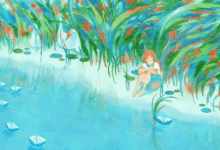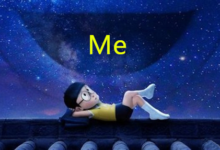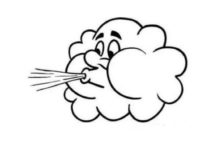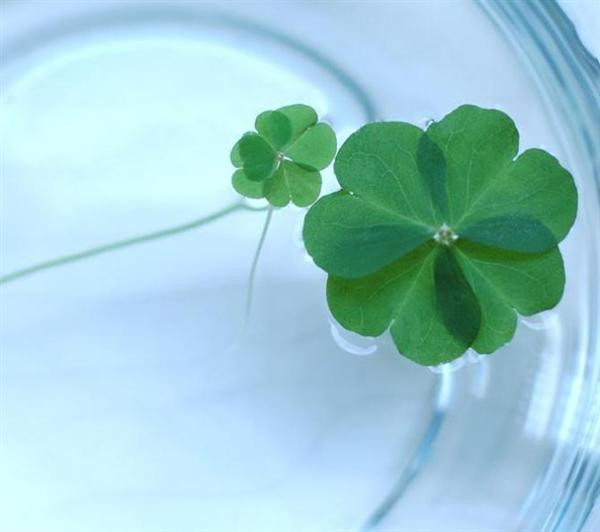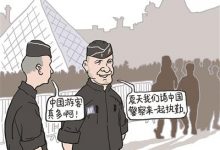HOURS OF SPRING
It is sweet on awaking in the early morn to listen to the small bird singing on the tree. No sound of voice or flute is like to the bird’s song; there is something in it distinct and
separate from all other notes. The throat of woman gives forth a more perfect music, and the organ is the glory of man’s soul. The bird upon the tree utters the meaning of the wind―a voice of the grass and wild flower, words of the green leaf; they speak through that slender tone. Sweetness of dew and rifts of sunshine, the dark hawthorn touched with breadths of open bud, the odour of the air, the colour of the daffodil―all that is delicious and beloved of spring-time are expressed in his song. Genius is nature, and his lay, like the sap in the bough from which he sings, rises without thought. Nor is it necessary that it should be a song; a few short notes in the sharp spring morning are sufficient to stir the heart. But yesterday the least of them all came to a bough by my window, and in his call I heard the sweet-briar wind rushing over the young grass. Refulgent fall the golden rays of the sun; a minute only, the clouds cover him and the hedge is dark. The bloom of the gorse is shut like a book; but it is there―a few hours of warmth and the covers will fall open. The meadow is bare, but in a little while the heart-shaped celandine leaves will come in their accustomed place. On the pollard willows the long wands are yellow-ruddy in the passing gleam of sunshine, the first colour of spring appears in their bark. The delicious wind rushes among them and they bow and rise; it touches the top of the dark pine that looks in the sun the same now as in summer; it lifts and swings the arching trail of bramble; it dries and crumbles the earth in its fingers; the hedge-sparrow’s feathers are fluttered as he sings on the bush.
I wonder to myself how they can all get on without me―how they manage, bird and flower, without me to keep the calendar for them. For I noted it so carefully and lovingly, day by day, the seed-leaves on the mounds in the sheltered places that come so early, the pushing up of the young grass, the succulent dandelion, the coltsfoot on the heavy, thick clods, the trodden chickweed despised at the foot of the gate-post, so common and small, and yet so dear to me. Every blade of grass was mine, as though I had planted it separately. They were all my pets, as the roses the lover of his garden tends so faithfully. All the grasses of the meadow were my pets, I loved them all; and perhaps that was why I never had a ‘pet,’ never cultivated a flower, never kept a caged bird, or any creature. Why keep pets when every wild free hawk that passed overhead in the air was mine? I joyed in his swift, careless flight, in the throw of his pinions, in his rush over the elms and miles of woodland; it was happiness to see his unchecked life. What more beautiful than the sweep and curve of his going through the azure sky? These were my pets, and all the grass. Under the wind it seemed to dry and become grey, and the starlings running to and fro on the surface that did not sink now stood high above it and were larger. The dust that drifted along blessed it and it grew. Day by day a change; always a note to make. The moss drying on the tree trunks, dog’s-mercury stirring under the ash-poles, bird’s-claw buds of beech lengthening; books upon books to be filled with these things. I cannot think how they manage without me.
For they were so much to me, I had come to feel that I was as much in return to them. The old, old error: I love the earth, therefore the earth loves me―I am her child―I am Man, the favoured of all creatures. I am the centre, and all for me was made.
In time past, strong of foot, I walked gaily up the noble hill that leads to Beachy Head from Eastbourne, joying greatly in the sun and the wind. Every step crumbled up numbers of minute grey shells, empty and dry, that crunched under foot like hoar-frost or fragile beads. They were very pretty; it was a shame to crush them―such vases as no king’s pottery could make. They lay by millions in the depths of the sward, and I thought as I broke them unwillingly that each of these had once been a house of life. A living creature dwelt in each and felt the joy of existence, and was to itself all in all―as if the great sun over the hill shone for it, and the width of the earth under was for it, and the grass and plants put on purpose for it. They were dead, the whole race of them, and these their skeletons were as dust under my feet. Nature sets no value upon life neither of minute hill-snail nor of human being.
I thought myself so much to the earliest leaf and the first meadow Orchis―so important that I should note the first zee-zee of the Titlark―that I should pronounce it summer, because now the oaks were green; I must not miss a day nor an hour in the fields lest something should escape me. How beautiful the droop of the great brome-grass by the wood! But to-day I have to listen to the lark’s song―not out of doors with him, but through the window-pane, and the bullfinch carries the rootlet fibre to his nest without me. They manage without me very well; they know their times and seasons―not only the civilised rooks, with their libraries of knowledge in their old nests of reference, but the stray things of the hedge and the chiffchaff from over sea in the ash wood. They go on without me. Orchis flower and cowslip―I cannot number them all―I hear, as it were, the patter of their feet―flower and bud and the beautiful clouds that go over, with the
sweet rush of rain and burst of sun glory among the leafy trees. They go on, and I am no more than the least of the empty shells that strewed the area of grass of the hill. Nature sets no value upon life, neither of mine nor of the larks that sang years ago. The earth is all in all to me, but I am nothing to the earth: it is bitter to know this before you are dead.
春光烂漫的时节
清晨醒来听树上小鸟的啼鸣甜美可爱。人声和笛声不像鸟儿的啁啾,里面有跟别的声调明显不同的声调。女声更具音乐性,风琴是男人的灵魂的荣光。树上小鸟的啼声抒吐的是风的含义――春风为我们带来花草的声音,绿叶的话语,而花、草、叶都通过鸟儿呖呖的声音说话。露水的晶莹,阳光下交织的光与影,深色的山楂树枝头一批初绽的新蕾,空气中的芳香,水仙花的颜色,春天一切怡人可爱之处都在小鸟的歌声中得到表现。大自然是天才,他的抒情歌曲,像他歌中树枝的树液,是不假思索就会冒出来的。那也不一定需要一首歌;在生气勃勃的春日早晨几个短短的音符就足以使心情振奋。但是昨天淡淡的春意都来自我窗前的一根枝柯,在鸟儿的啼鸣中我听到野蔷薇的呼吸从嫩草上吹来。金色的阳光是那么灿烂,转瞬间浮云遮掩了太阳,树篱便暗了下来。荆豆花闭合起来像一本书;但荆豆还在哪里――几小时的温暖,花瓣又会舒展开来。草地上好像什么也没长,不多一会儿,白屈菜的心脏形叶子会在原来的地方出现。截去树梢的杨树长长的嫩枝在一闪一闪的阳光里呈现出橘红色,春天最初的色彩出现在它们的树皮上。轻风在它们当中穿梭而杨枝就随着摇摆;风抚摸着黛色的松树的顶部,阳光下的松树现在看起来如同在夏天时一样;它抬起并摇晃悬钩子的弯弯的枝条;它用它的手指把泥土掰碎弄干;篱雀于灌木丛上高歌,春风抚动他的翎羽。
我自己感到奇怪,假如没有我它们怎么办――这些花鸟没有我,怎么知道季节的变迁呢?我是这么仔细并怀着爱心地日复一日作着记录,山丘上阴处,嫩叶这么早就萌芽,嫩草积极地向上生长,蒲公英焕发着生机,生长在厚实的土地上的款冬,在门柱下被践踏过的不起眼的卷耳草,这么平凡,这么细小,然而对我是那么可亲。每一片草叶都是我的,好像是我一一种下的。它们都曾是我的宠儿,好像热爱自己园子的主人精心培育的玫瑰花。草地上的一花一草全是我的宠儿,我都喜爱它们;这大约是我从未养过一个“宠物”,从未栽过一种花,从未养过一只笼鸟或任何生物的缘故。如果每一只划过我头上的天空的野鹰都是属于我的,为什么我还要养宠物呢?我为他迅疾自得地飞行而感到快乐,看着他挥动着羽翼,匆匆越过一片片榆树和好几英里的林地,都让我高兴;看到他自由自在地生活是一种快乐。有什么比他掠过碧空时划出的弧线更美呢?这些都曾是我的宠物,以及一切花草。在寒风的吹拂下,它们干枯了,变灰白了,在没有倒下去的花草上飞来飞去的椋鸟如今又站在它们上面,看起来大了一些。飘扬过去的尘土祝福它们,现在它们又长了出来。日新月异;总是有值得一记的东西。树干上的苔藓干了,山毛榉鸟爪似的嫩叶伸长了,木岑树干下的狗蒺藜萌生了;这类事情可以写一本又一本,无法想像,没有我,它们该怎么办。
因为它们对我是如此重要,反过来我也感到我对它们同样重要。有个历史悠久的错误:我爱大地,因此大地也爱我――我是她的孩子――我是人,万物的宠儿。我是宇宙的中心,万物皆为我而生。
过去由于腿脚强健,我曾经快乐地走上从伊斯特博恩通往海滩头的那座高山,非常舒畅地享受艳阳与和风。每一步都要踩碎不少细小的灰色的贝壳,壳已风干,内中空无一物,在脚下咭嘎地响犹如白霜或易碎的珠子。它们非常好看,踩碎了是非常可惜的――那是任何国王的陶瓷器皿都无法媲美的花瓶。它们成千上万躺在草地的深处,我一边不情愿地把它们踩碎,一边又想着,它们都曾经是一个生命的居所。一个活的生物曾住在里面,感受过生存的乐趣,对它来说,那便是一切――好像高山之上的太阳是为它而照耀,脚下的地球则为它才那么广大无边,草木也因它才有了意义。可是它们死去了,整个一族,它们的骨骼如同我脚下的尘土。大自然对生命并不赋予什么价值,不论是小小的山蜗牛或是人类。
我以为自己对最早抽发的枝叶和草地上头一批萌芽的玉凤花都很重要――我对它们是如此重要,因此我应该记下山雀的第一声叽啾,――我应该宣布夏天的到来,因为橡树转青;我一定不得遗漏田野上一天或一个时辰的变化,唯恐有什么东西逃过我的眼睛。林子边的雀麦草的低垂的姿态是多么美啊!但今天我得听听云雀的歌――但不是到户外去听而是在窗前听,红腹灰雀不用我提醒也知道要叼着有须根的小枝条飞往它的巢。它们没有我也干得不错;它们知道时间和季节――不仅仅是文明的白嘴鸦不用我费神,因为在它们巢中有丰富的藏书,就连篱边离群的流浪汉们以及从远方的木岑树林越海而来的棕柳莺,也用不着我操心。玉凤花和牛蒡――我不能一一列举――和往常一样,我听到它们的脚步声――花,芽和飘过去的美丽的白云,以及匆匆而来的甜润的雨和绿荫间投下的明艳的阳光。这一切都生息不止,而我呢?充其量不过是散布在山冈草地上的空空的贝壳。大自然不给生命衡定什么价值,对我对多少年前歌唱的云雀都一视同仁。在你死去之前要接受这点并不容易:大地对我是一切的一切,可是我对大地算不上什么。




